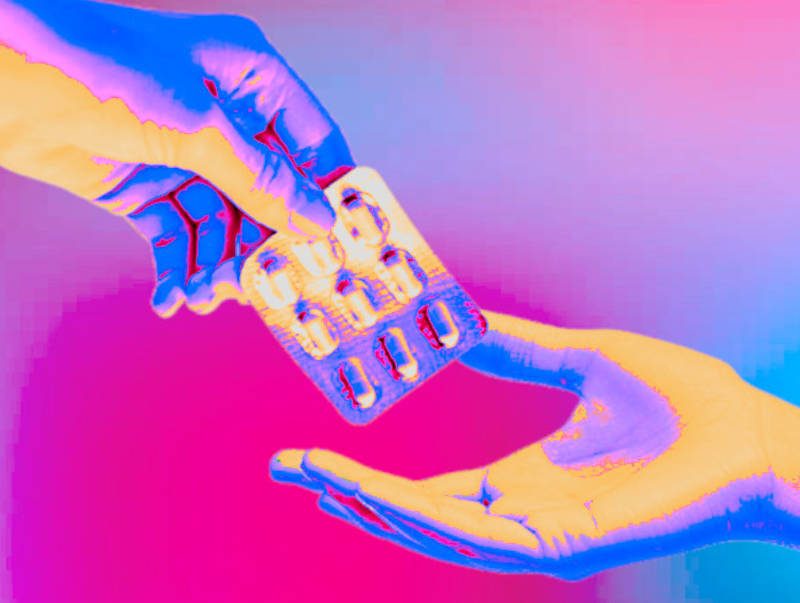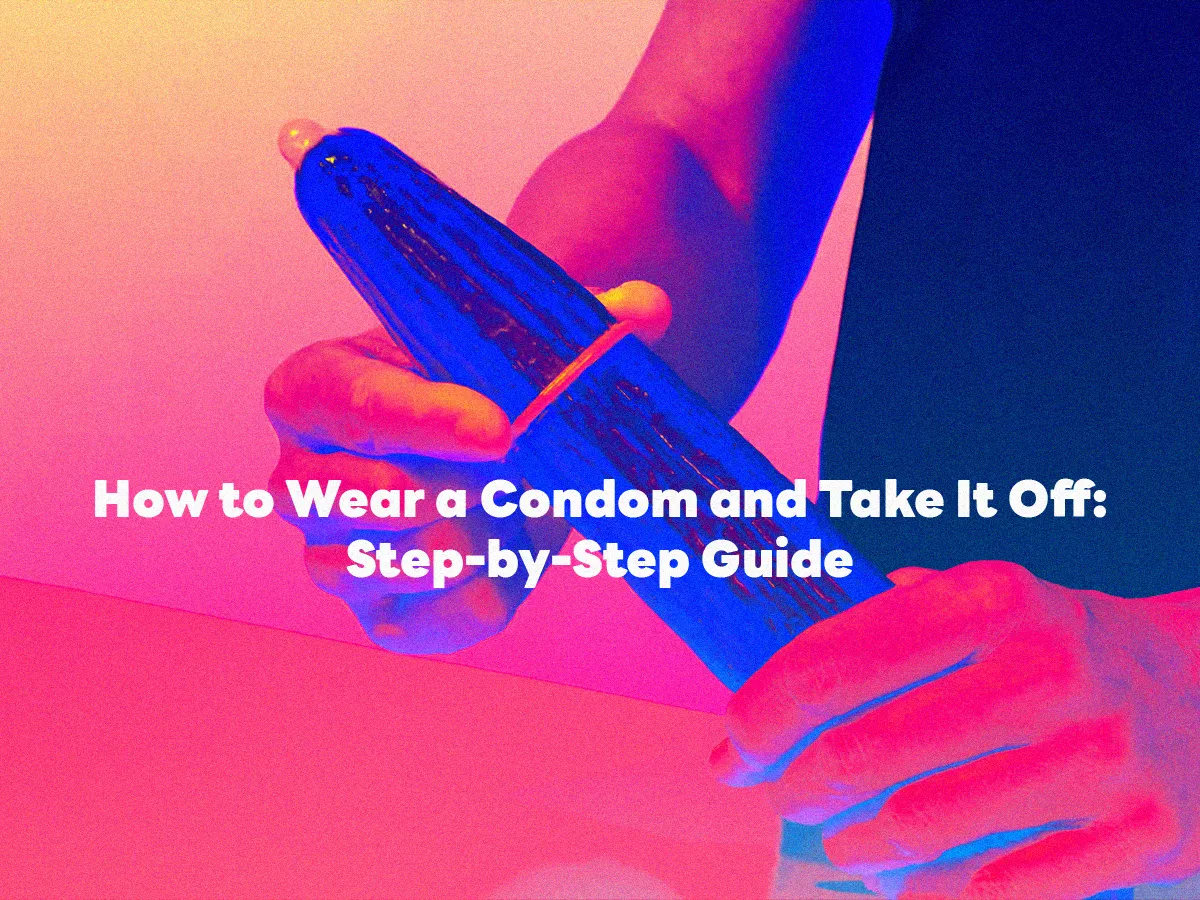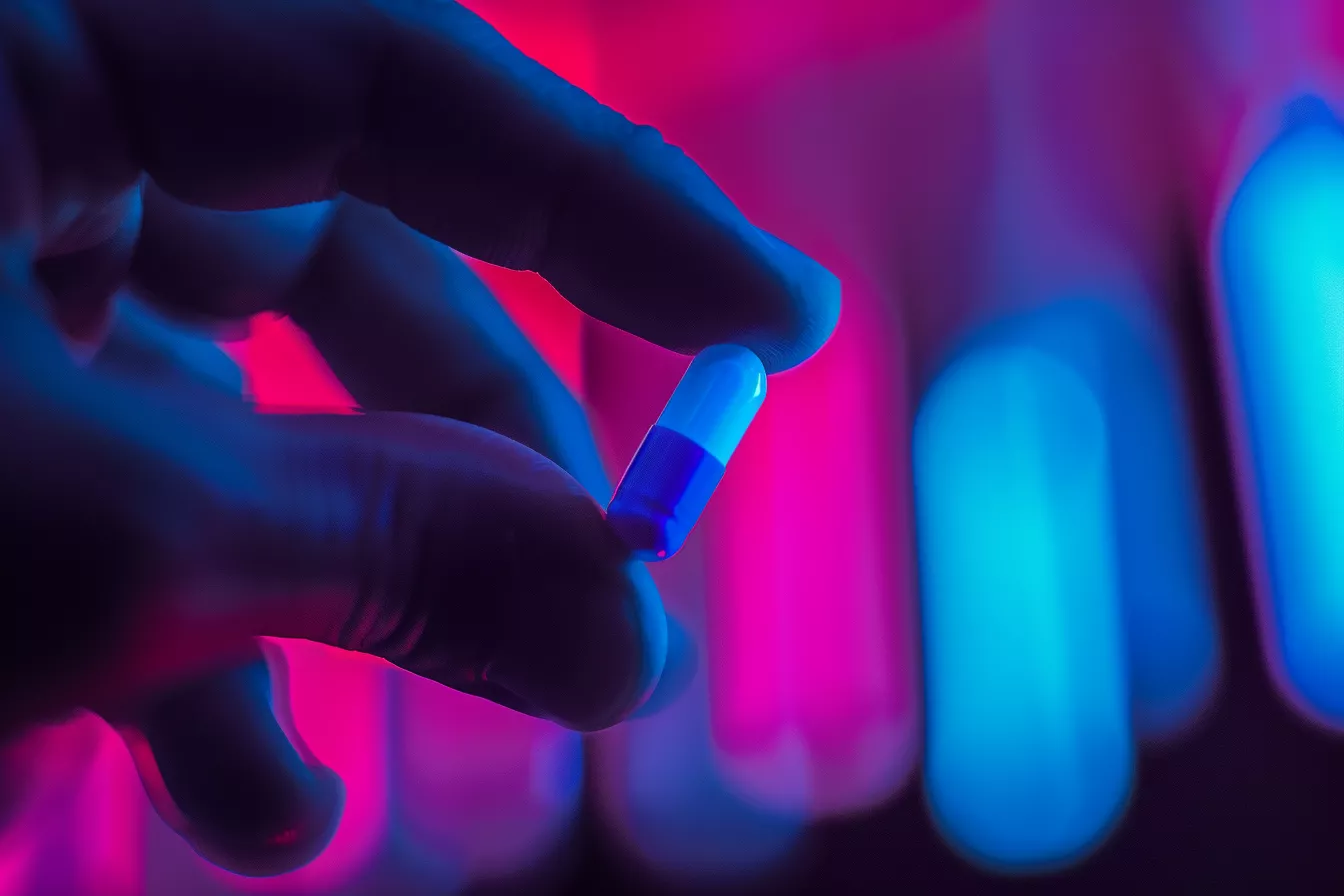Condom Broke? Get PEP & What to Do Next!
4711
If you are concerned about pregnancy, get emergency contraception right immediately. If there is a possibility of STI exposure, you should get tested.

Condom Broke? What do you think I should do next?
Condoms make oral, vaginal, and anal intercourse safer. Condoms are an effective type of contraception that can help prevent infections and pregnancy. However, a condom may break, exposing you to the danger of contracting sexually transmitted diseases (STDs) or becoming pregnant.
For more information about the medication and ordering process,
please email pulseliving@pulse-clinic.com or chat on your preferred platform.
![]() +66-84-226-2569
+66-84-226-2569  @pulserx
@pulserx ![]() PulseClinic
PulseClinic
What to Know About Condoms?
When used appropriately, condoms are among the most effective types of contraception. There are two main types of condoms:
- External condoms. These are penile condoms, sometimes known as "male condoms." They are composed of a variety of materials, including latex, plastic, and lambskin.
- Internal condoms. These condoms, which may be put into the vagina or anus, are sometimes known as "female condoms."
The most frequent materials used to create condoms are:
- Latex. Latex condoms are the most popular form of condom.
- Plastic (a synthetic rubber). Plastic rubber condoms break more frequently than latex condoms. This is a fantastic solution for those who are allergic to latex.
- Animal skin. These are natural condoms, typically made of lambskin. Natural membrane condoms are less efficient in preventing HIV and STIs. That's because they have microscopic holes in them, which reduces their efficiency in preventing infections.
- Nitrile. Nitrile is a synthetic latex that is widely used to make female condoms. It is just as effective as latex condoms in STI and HIV protection.
Condom Broke Signs
When used correctly, condoms seldom break. Even when utilised appropriately, this can occur. If you fear yours has broken, stop having sex right away and check it out.
Your condom may be broken if:
- When the condom is peeled away from the penis, it tears.
- If cum or semen is pouring from the condom.
- If a condom is absent. A slipping condom is identical to a broken one.
- If you only locate the ring of the condom on your or your partner's penis, or if the condom is wrapped around the penis ring.

What to do to prevent condom breakage.
Many times, condom breaking is preventable. Here are some strategies to reduce condom breakage:
- Always verify the expiration date of the condom before using it.
- Carefully open condom wrappers to avoid tearing or creating a hole.
- Before you wear the condom, make sure you know which direction it rolls.
- Use the proper lubricant for the material.
- Wear the correct size. Feel free to try other brands until you discover the most comfortable one and size.
A condom breakdown might be a stressful situation, but remember that you have choices. At PULSE Clinic, we recognise the need to take immediate action to preserve your health. We provide the following confidential services to assist you in managing this issue efficiently.
Emergency PEP (post-exposure prophylaxis)
A condom breaking during intercourse raises worries about HIV transmission. Fortunately, emergency PEP (Post-Exposure Prophylaxis) is a pharmaceutical regimen that can dramatically lower the risk of HIV infection following a potential exposure.
What You Should Know About PEP?
Time is critical: For PEP to be most effective, treatment must be initiated within 72 hours (preferably within 24 hours) of the probable exposure. The sooner you begin PEP, the greater your chances of avoiding HIV infection.
Consultation is required: PEP medicine is not a one-size-fits-all answer. A healthcare practitioner will evaluate your unique risk factors, including the nature of the exposure and the time since it occurred.
At PULSE Bangkok Clinic, we offer rapid and confidential PEP consultations. Our physicians will thoroughly assess your problem and recommend the best course of action.
Important Note: PEP is very successful in preventing HIV infection, but it does not protect against other sexually transmitted diseases. Testing for STIs is still necessary when a condom breaks.
Is it too late if HIV has already entered the body?
Not necessarily, if action is taken quickly. After HIV enters the bloodstream, it takes time before it permanently establishes itself in the body. A person exposed to HIV can potentially prevent the virus from establishing itself by starting PEP treatment within 72 hours.
Chat with PULSE CLINIC ONLINE Department
Does taking PEP guarantee that I won’t become HIV positive?
Research shows that PEP significantly reduces the likelihood of HIV infection, but it’s not 100% effective. Some individuals who take PEP may still contract HIV, often due to the following:
- Delaying the start of PEP
- Not adhering to the prescribed daily dose for the full 28 days
- Missing doses or failing to complete the treatment
- Exposure to a strain of HIV resistant to certain drugs (though this is rare)
- A high initial viral load that makes the drugs less effective
- Continued exposure to HIV, such as unprotected sex or needle sharing, during PEP treatment
However, starting PEP as soon as possible after exposure improves its effectiveness.
What HIV PEP medications do we use?
We offer the latest PEP medications with fewer side effects and greater effectiveness. For adults, we prescribe Tenofovir combined with either Tenofovir (TDF) or Emtricitabine (FTC), which are also the recommended drugs for HIV treatment. The third drug is chosen by the doctor based on WHO and CDC guidelines.
Some clients may not understand the concept of drug-resistant HIV. If someone is exposed to such a strain, classic PEP medications may not be effective. The American CDC suggests using a higher class of drugs in these cases to avoid resistance, and while these are available at our clinic, they are more costly than standard PEP medications commonly used in low-income countries. When prescribed, it is because the doctor assesses a high risk and follows CDC standards for PEP treatment.
Additional Recommendations: Your doctor may recommend preventive treatment for possible STIs such as gonorrhea, chlamydia, or syphilis after unprotected sex or accidental exposure. We also offer PCR multiplex testing for 14 STDs at Pulse Clinic.

When is PEP unnecessary?
- You are sure your partner doesn’t have HIV.
- Your partner is HIV positive but has an undetectable viral load due to successful treatment.
- Exposure through a human bite.
- Exposure from semen in the eye.
WHERE CAN I GET PEP?
For more information about the medication and ordering process,
please email pulseliving@pulse-clinic.com or chat on your preferred platform.
![]() +66-84-226-2569
+66-84-226-2569  @pulserx
@pulserx ![]() PulseClinic
PulseClinic
Anyway.. .Condoms are still excellent protection.
There is no such thing as absolute protection during sex. Even if condoms occasionally fail, they remain your best defense against STIs. Condoms (of many sorts) are effective birth control when used regularly and appropriately.
If you are primarily concerned with avoiding conception, several birth control techniques are superior to condoms. Remember that alternative methods of birth control do not protect you from sexually transmitted infections; only condoms do.
Missed the 72-Hour Window for HIV PEP? Seek Medical Advice!
Suppose you cannot access HIV PEP (Post-Exposure Prophylaxis) within 72 hours, even if it's been 5-7 days since potential exposure. In that case, it's still essential to consult a healthcare professional about your options. You may be eligible for a 3-drug combination of antiretroviral medications to begin early treatment, which can help minimize damage to your immune system in case you have contracted HIV. Taking prompt action can be crucial for your health.
For more information about getting HIV treatment at PULSE Clinic, contact us at info.bkk@pulse-clinic.com or chat with us via one of the following platforms:
![]() +66 65 237 1936
+66 65 237 1936  @PULSEClinic
@PULSEClinic ![]() PulseClinic
PulseClinic
Chat with PULSE CLINIC ONLINE Department
Loading...
Clinic Locations
Loading...











